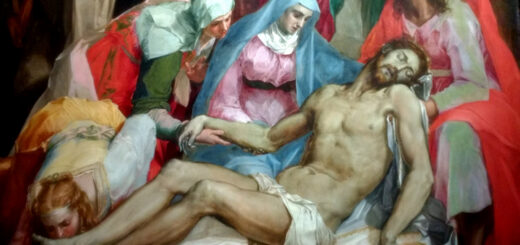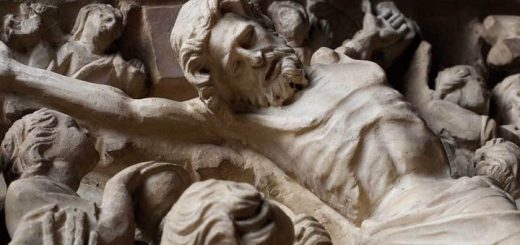San Tommaso d'Aquino and homosexuality "naturally against nature"
Article published on the Quering The Church website (England) on December 19, 2015, freely translated by Simone Ramacci
At the heart of the Catholic teaching on homosexuality there is the affirmation that this orientation is disordered as "against nature", an idea that originates in the teachings of St. Thomas Aquinas about natural law. This idea is contrary to contemporary scientific discoveries, and also goes against many of the issues present in the field of theology and exegesis.
In Amours: L'Eglise, Les Divorcés Remariés, Les Couples Homosexuels The Dominican theologian Adriano Oliva suggests that Tommaso's current interpretation may be part of those distorted traditions against which once Joseph Ratzinger has suggested we must always be on guard. In the very first paragraph of the book in the section on homosexuality, Oliva presents the core of its argument:
The Christian communities and today's faithful show different ideas regarding homosexuality, ideas that can space - often radically - from the magisterium. St. Thomas did not develop a theory of homosexuality and - like his contemporaries - when he speaks of various forms of lust includes the sin of sodomy. However, in his work we find a reflection of character above all metaphysical, and not moral: a brilliant intuition that can explain the origin of homosexuality, that of course "against nature".
From the general principles of his doctrine, we will develop this intuition of Tommaso towards his logical conclusion, to develop new prospects for understanding the homosexuality and inclusion of people and homosexual couples in the Christian community. We want to offer new answers to the questions that today imposes the pastoral with homosexual people. This study, which might seem anachronistic in the method, is aimed at demonstrating that a change in the magisterium regarding homosexuality and use of sexuality by homosexual couples, would be not only welcome and in line with the current research in the anthropological, theological and exegetical fields, but it would also be a natural development of the tomist tradition.
"Of course against nature" it is meant that, although for humanity in general both against nature to have relationships with people of the same sex, San Tommaso recognizes that some individuals have a completely natural tendency (which we would call). Oliva is not the first to notice what she calls "a brilliant intuition": Boswell had indicated it years ago in Christianity, Social Tolerance and Homosexuality. However, he exceeds Boswell in reconciling the naturalness of such an orientation with the certain condemnation that aquinas makes "sodomy", and in analyzing its implications.
Oliva shows that Aquinas distinguished body impulses from those of the soul. The sins of sodomy (which in his thought include much more than the only coitus between people of the same sex) are condemned as purely physical, and caused by simple lust. However, for people who are naturally attracted to the same sex, homosexual relationships come from the soul, and not from the body. As such, they are intrinsically good.
The most important distinction in sexual ethics, therefore, is not between straight or homosexual relationships, but between relationships based on lust, and on self -gratification, and those of mutual love that gives itself. From these observations of the share, Oliva derives the theological implications for the modern world, with our largest understanding of human sexuality, while taking into account the theological developments from the Middle Ages of San Tommaso to today.
His conclusion is that the Church should approve the relationships between people of the same sex (including the erotic act) for homosexual people, and that these relationships - although not the same as a heterosexual marriage - should receive a blessing in the church, as sacramental.
Original article: Aquinas: Homosexuality "Naturally Against Nature"






